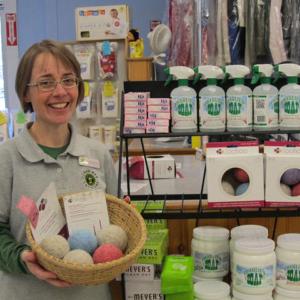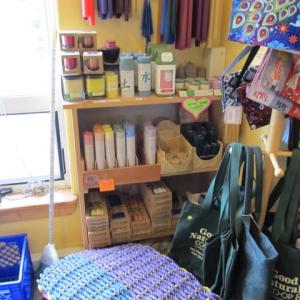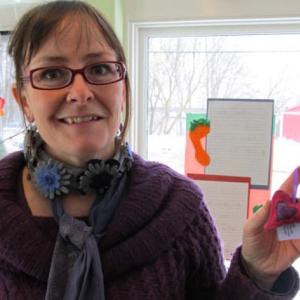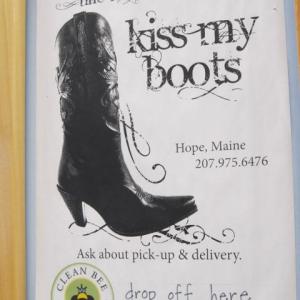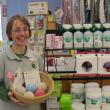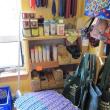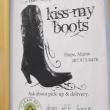More unlikely pairings: Local businesses collaborate with artisans, and thrive
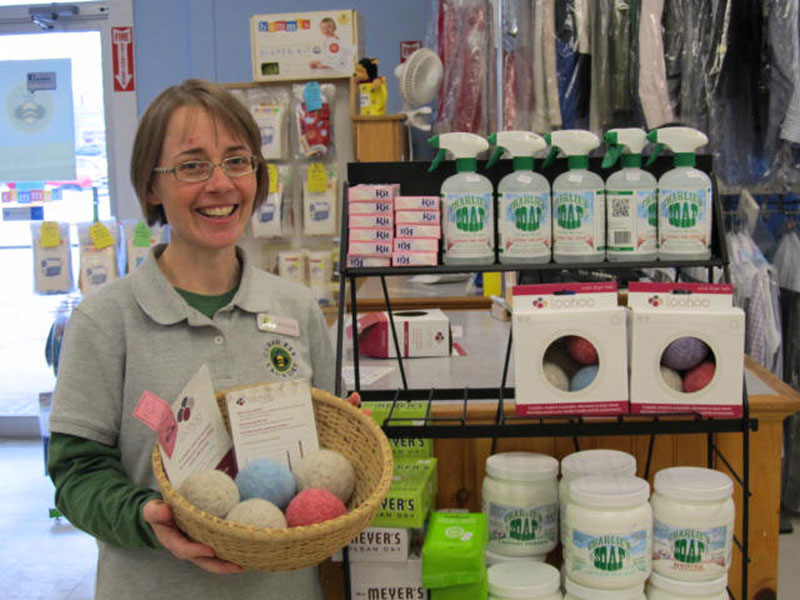 Jennifer Moore Temple, co-owner of Clean Bee Laundry, holds a basket of Maine-made Loo Hoo Wool Dryer Balls. (Photo by Kay Stephens)
Jennifer Moore Temple, co-owner of Clean Bee Laundry, holds a basket of Maine-made Loo Hoo Wool Dryer Balls. (Photo by Kay Stephens)
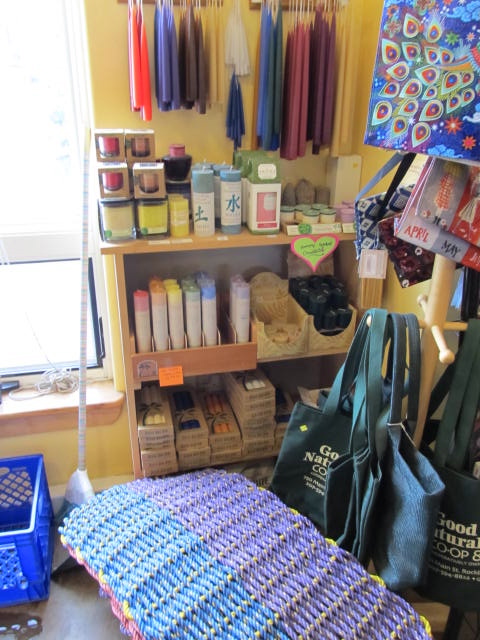 The housewares section of The Good Tern Cooperative Food Market features all locally made items, a great example of fusion marketing. (Photo by Kay Stephens)
The housewares section of The Good Tern Cooperative Food Market features all locally made items, a great example of fusion marketing. (Photo by Kay Stephens)
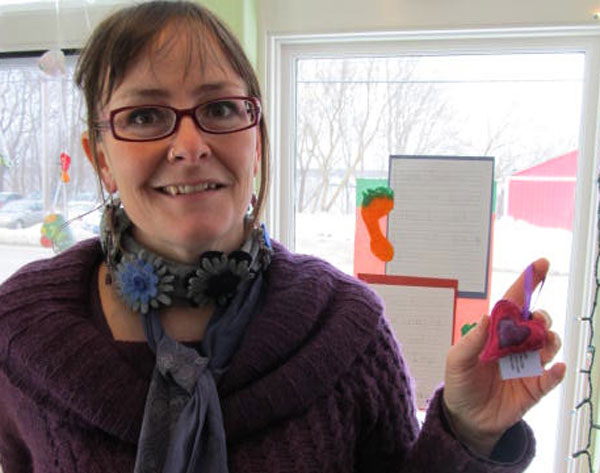 Teisha Hufnagel Jones, education outreach and membership coordinator of the Good Tern, displays a felted heart ornament made by Kate Chandler of Orange Iron Studios, also a member-owner. (Photo by Kay Stephens)
Teisha Hufnagel Jones, education outreach and membership coordinator of the Good Tern, displays a felted heart ornament made by Kate Chandler of Orange Iron Studios, also a member-owner. (Photo by Kay Stephens)
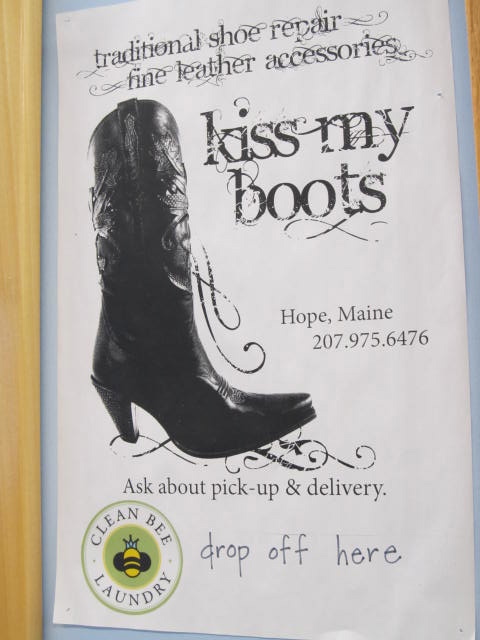 Carleton Leavitt is an self-taught cobbler who works in Hope. He offers his service through Clean Bee Laundry and Home Supply Center, a hardware store in Belfast. (Photo by Kay Stephens)
Carleton Leavitt is an self-taught cobbler who works in Hope. He offers his service through Clean Bee Laundry and Home Supply Center, a hardware store in Belfast. (Photo by Kay Stephens)
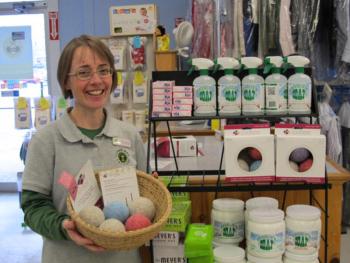 Jennifer Moore Temple, co-owner of Clean Bee Laundry, holds a basket of Maine-made Loo Hoo Wool Dryer Balls. (Photo by Kay Stephens)
Jennifer Moore Temple, co-owner of Clean Bee Laundry, holds a basket of Maine-made Loo Hoo Wool Dryer Balls. (Photo by Kay Stephens)
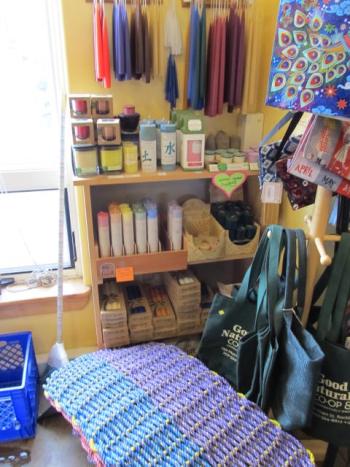 The housewares section of The Good Tern Cooperative Food Market features all locally made items, a great example of fusion marketing. (Photo by Kay Stephens)
The housewares section of The Good Tern Cooperative Food Market features all locally made items, a great example of fusion marketing. (Photo by Kay Stephens)
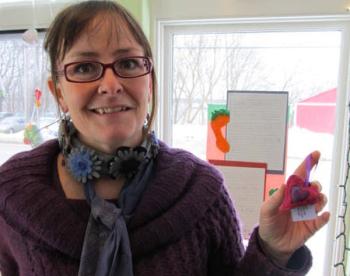 Teisha Hufnagel Jones, education outreach and membership coordinator of the Good Tern, displays a felted heart ornament made by Kate Chandler of Orange Iron Studios, also a member-owner. (Photo by Kay Stephens)
Teisha Hufnagel Jones, education outreach and membership coordinator of the Good Tern, displays a felted heart ornament made by Kate Chandler of Orange Iron Studios, also a member-owner. (Photo by Kay Stephens)
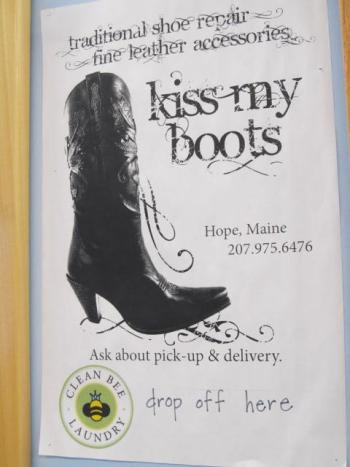 Carleton Leavitt is an self-taught cobbler who works in Hope. He offers his service through Clean Bee Laundry and Home Supply Center, a hardware store in Belfast. (Photo by Kay Stephens)
Carleton Leavitt is an self-taught cobbler who works in Hope. He offers his service through Clean Bee Laundry and Home Supply Center, a hardware store in Belfast. (Photo by Kay Stephens)
Last year around this time, we wrote a story about small businesses joining forces with artists and artisans, titled The unlikely (and smart) pairing of local businesses and artists.
This year, we looked around to see who else had informally adopted what is called fusion marketing, the concept of fusing two businesses into a cooperative effort of tying together both marketing efforts. In Maine, more than 97 percent of the state’s businesses are small—and in the winter months when the economy slows down, it just makes sense for people to collaborate rather than compete. In this case, the fusion concept works best when local businesses offer a small amount of their retail space with artists and craftspeople. We asked several local business owners who’ve done just that and asked what they’re getting out of the deal.
The Good Tern Cooperative Food Market in Rockland is a prime example of this kind of fusion marketing (after all, the word “cooperative” is in their title). Teisha Hufnagel Jones, education outreach and membership coordinator, showed us three dedicated areas in the small store that feature the work of local artists, craftspeople and entrepreneurs. The shelf space by the checkout counters displayed the handicrafts of hand-dipped candles by Danica Designs and woven mats made of repurposed float rope called Twists and Turns by Joe Auciello, who happens to also be a member-owner of The Good Tern.
“Joe is part of our waste management team,” she said. “He makes trips to the dump every week for us and it was a natural collaboration for us to feature his work.”
While it seems anyone could ask to have his or her product featured in the Good Tern, Hufnagel Jones said they tend to accept locally crafted items and give preference to those created by the member-owners of the Good Tern Co-op.
“Keeping the money in our local economy, supporting our local neighbors, supporting those who support us, that’s what building community is all about and the fundamental basis of what we do,” she said.
Sometimes a particular craft and a particular store are a match made in heaven. When Jennifer Moore Temple, who co-owns Clean Bee Laundry in Camden, learned that a Camden entrepreneur, Cyndi Prince, had just invented a natural wool dryer ball (Loo Hoo Wool Dryer Balls) to take the place of chemical-infused dryer sheets, she reached out to Cyndi to feature some of her products on Clean Bee’s counter space. Now, they’ve been happily collaborating for years.
“We’re really community minded and it works out well for both of us,” said Moore Temple. “One, because it helps us provide some retail options for our customers. Two, it works really well for Cyndi because we have so many tourists that come through our space and they often buy her product as a gift. It really helps spread the word.”
Other times, a business might feature a service that has nothing to do with their brand, but simply helps out a fellow community member. Carleton Leavitt is an self-taught cobbler who works in Hope. His business, Kiss My Boots, offers all kinds of leather repair for shoes, but he’s a one-man band without a shop, so it’s hard to get his service out there. He has a deal with both Clean Bee Laundry as well as the Home Supply Center hardware store in Belfast, where people can pick up and drop off their shoes at these locations. Eunice Palmer owner of Home Supply Center, said that being open seven days a week was a draw for Leavitt.
“That offered more opportunity for people to drop off and pick up their shoes and boots and it makes convenient for them,” said Palmer. “As for us, it brings more people into the store who may never have been here before. It’s a good business arrangement.”
For artists who seek nontraditional ways of exposure outside of a gallery, finding a local business that is willing to display their art on the walls is the perfect solution. Often, this natural pairing happens in restaurants, cafes, and bookstores. Sometimes, the collaboration happens in an unlikely spot, all because of good relationship building. When Cheryl Denz of Terra Optima Farm and Market opened their new store in Rockland, photographer Bonnie Farmer had a studio in the same neighborhood. Farmer came in to see how the progress of the new store was going and to say hello. At that point, she proposed to Denz the idea of displaying some of her new assemblage artwork on the walls.
“When she brought over some of the artwork for me to see, I was like ‘Wow, I really like this,’” said Denz. “The pieces all come from upcycled found objects she finds from old farms or junk stores and shops. The artwork enhances the interior of the store. I’m really pleased with it. She has gotten a lot of positive feedback from it and has sold a number of pieces.”
For Farmer and Denz, the collaboration took on even greater meaning when Terra Optima recently did a benefit for homeless teens.
”Bonnie stepped right up and created this one piece where 50 percent of its proceeds would benefit the Youth From Maine Hungry & Homeless Teens project” said Denz. “She’s right on board with this and has the same mind set, so that was really quite generous of her to offer that piece.”
This is one of the best parts of living in a small town community with a strong creative economy presence. In a big city, retail space is limited, the rents are high and competition for art and handmade crafts is much higher. The generosity of spirit that comes from small business owners willing to enhance their space with the offerings of artists and artisans benefits everybody. It may not be a concept that people were aware was an actual guerrilla marketing tool, but fusion is alive and thriving in the Midcoast. Take a note of it next time you walk into a local shop.
Kay Stephens can be reached at news@penbaypilot.com
Event Date
Address
United States

